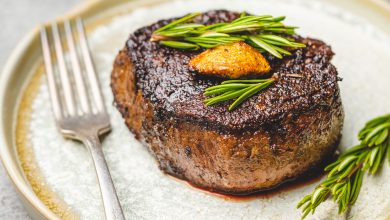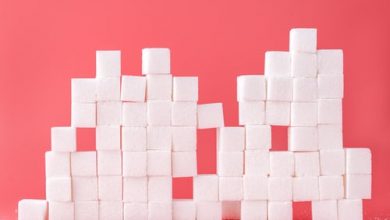
Why Instagram Food Challenges are Actually Detrimental to Your Health and Weight
If you are the kind of an individual who loves food and you are on Instagram, the chances are quite strong that you use this social media platform to find new restaurants near your home or to try preparing some unique and delicious dishes that somebody might have posted. If you are a fitness freak and conscious about your health, you would try and learn about superfoods and healthy eating trends. That is, however, not the only thing food lovers do on Instagram. Food challenges are comparatively new, but getting very popular over time. Today, several eating challenges are doing the rounds on Instagram and other social media platforms. If thrusting 20 glasses of delicious strawberry milkshake down your throat is not something you fancy, you can try hot and spicy chicken breasts, massive cakes, or a tower of shrimps. While these food challenges can be fun to do and to watch, it can prove detrimental to your health and weight.
Food Challenges: The Start
The first likely food challenge was probably around the time when Crown Candy Kitchen challenged people to consume five 24-ounce milkshakes in less than 30 minutes. At the time, people won T-shirts and free milkshakes as a reward, and they even got their picture framed on their wall of fame. Food challenges have been around since 1913; however, it was Adam Richman who made it very popular with his insane show Man v. Food. They were food challenges that anybody and almost everybody could try.
How Instagram Influences Your Eating Habits
There is no doubt that social media, and Instagram in particular, has changed the way people perceive food. Aesthetically pleasing pictures of food on Instagram promote food trends and also a specific lifestyle. While it might seem that images of food cannot harm your body, you might be in for a surprise.
As per a study that was published in the journal Brain and Cognition, regular exposure to pictures and video footage of delicious and high-calorie foods can aggravate or intensify your physiological hunger. It hence goes to imply that daily images of a tasty and sumptuous meal can encourage you to binge, whether or not you are hungry. Researchers say that if you spend considerable time scrolling through food posts, you are likely to consume excess calories than what your body requires, thereby contributing to weight gain.
Images of tasty food over time can mess with your insulin levels and heart rate. It can make you salivate, all because your body begins to crave the food that you see. Further, if you love food or you are already overweight, you will most probably respond to images of high-calorie foods by going forward and eating them.
A study also showed that looking at several pictures with a specific taste is likely to reduce your enjoyment when you taste that food.

What Food Challenges Do to Your Body and Brain
The human body is not designed to consume so much food, and that too in one sitting. If you still plan to go ahead with participating in food challenges, you cannot avoid some adverse effects it might have on your digestive tract and your whole body.
Listed below are few adverse effects that food challenges on Instagram and other platforms can do to your body and brain:
Your stomach is quick to fill during challenges.
An average human being’s stomach is approximately six inches wide at the broadest point and twelve inches long. Our stomach can hence very easily stretch to hold nearly a quart of food. That is certainly not much when you are talking about gobbling two to three dozens of burgers for a food challenge.
Chronic or excessive eating will stretch a person’s stomach to enable him/her to eat that much more, and this is what professional food challengers do. The stomach of Matt Stonie, who is one of the most popular speed eating champions from around the world, for example, has a massive capacity of between 16 and 20 pounds.
Your brain asks you to stop eating.
If you plan to swallow 50 or more doughnuts just so that you can win a free movie ticket to watch your favorite film, there is something that might not be favoring your decision. That is your nervous system or the vagus nerve to be specific. When you keep eating without any signs of stopping, your vagus nerve sends across a message to your brain, asking you to stop. The message comes to you in the form of nausea, discomfort, and even vomiting. It can also be referred to as the satiety reflex, and that is one of the causes of food challenge failures.
The stomach swells during a food challenge.
Researchers from the University of Pennsylvania wanted to study the difference between a professional eater and an amateur. Their control subject, who was an amateur eater, couldn’t eat more than seven hot dogs, as he was full and feeling sick in his stomach. When he lifted his shirt to show his belly, the researchers saw that there was no evident change in his shape. They then observed a professional eater who ate 36 hot dogs in just ten minutes. His abdomen seemed protruded, and the internal scans of his revealed that his stomach had expanded to such an extent that he risked gastric perforation. The researchers then decided to put a stop to the test. The person, however, told the researchers that his abdomen would return to its standard shape over many days of not eating.
Dairy food challenges test your digestive ability.
Several people are allergic to milk because of the lactose it contains. Dairy food challenges test your stomach’s ability to digest the lactose, even if your body is not lactose intolerant. It is because your body can process only a limited amount of lactose. The extra lactose gets cornered into the colon, after which the bacteria digest it and it goes on to multiply. The consequences are diarrhea and extreme gas, among others. Milk products contain a massive amount of nutrients and vitamins, and hence it takes time for the body to digest them.
Hot food challenges can lead you to hospitalization.
Hot food triggers pain receptors, thereby sending signals to the brain that you are in pain and that you are being burned. When the response is triggered, it leads to inflammation, retching, and sweating. The reactions get extreme as we consume hotter and spicier foods. Two reporters, in 2014, were hospitalized after trying to eat one (unnamed) hot chilli burger, after complaining of severe stomach cramps and pains. In another instance, a man who ate a Carolina Reaper had to be hospitalized after complaining of severe headaches called thunderclap headaches, which are sudden and extreme bursts of pain in the head. The hot pepper had led to the narrowing down of blood vessels in his brain, owing to which he experienced severe headaches. Having very hot peppers has also led to the narrowing down of arteries, which ultimately causes heart attacks.
The food challenge leaves you with an uncomfortable feeling.
Taking on a massive food challenge comes with many side effects. Whether you have just begun your food challenge journey or if you are a professional eater, you will most likely experience some kind of suffering even after you have completed the challenge.
According to professional speed food eater Michelle Lesco, eating a high amount of salty food can leave you feeling bloated and uncomfortable for a couple of days. She also felt exhausted and sick when she ate oily or greasy foods during food challenges.
Amateur eater might suffer from gastrointestinal distress and other discomforts more often in contrast to a professional eater. A competitive eater trains their bodies over a period to deal with a massive amount of food at one go more efficiently.
Dangers of Food Challenges

Food challenges can be fun, and showcasing it on Instagram can get the attention of quite a few foodies. Competitive eating or food challenges are exciting but dangerous at the same time. Listed below are a few dangers of food challenges:
Choking can even take you to hospital.
If you want to win a food challenge or eating competition, you will have to swallow a large amount of food. You will not get enough time to chew the food, which is what you would do while eating a regular meal. The recommended chewing time for each bite is 27 times, and since you are not doing that during the challenge, you risk the possibility of choking. The situation can sometimes become so severe that you might have to be taken to the hospital.
Overeating can make you sick.
Whether it is a food challenge or just binging, too much food can cause your stomach to ache and can even make you throw up. Unless you are a professional eater, it is better to watch out what and how much you eat.
Food challenges can cause obesity or weight gain.
It is a well-known fact that you will gain pounds if you consume more calories than what you physically burn off. That is to say that, if you eat 4,000 calories worth of food a day and burn off only 2,500 calories, the extra calories will be processed and stored as fat, thereby leading to excessive weight gain over a period. If you are a regular eater and take on food challenges very often, you are likely to put on a lot of weight if you don’t exercise and burn them off.
Too much liquid consumption can lead to death.
All eating competitions require a lot of training. Everyone adopts a training pattern that best suits them, and some food challengers prefer to train with liquids. Drinking excessive water can lead to depletion of electrolytes, causing you to pass out or even die. It is hence an excellent idea to avoid training with water or any liquids if you are starting. Professional trainers do train with liquids quite successfully, but they do it under expert guidance. Too much water and food consumption can rupture your stomach and esophagus by expanding your esophagus muscles and abdomen.
Why are competitive eating challenges unhealthy?
While it is normal to want to eat a little more than the required calories your body needs each day, it is undoubtedly abnormal to thrust inside your body 12,000 calories or more at one go. Let us face the fact here – That is a whole lot of food.
Your internal digestive organs have to work a lot so that it can digest all the extra foods that you have eaten. Food challenges on Instagram or anywhere else can harm your health and cause you to gain weight if you do not practice moderation.



